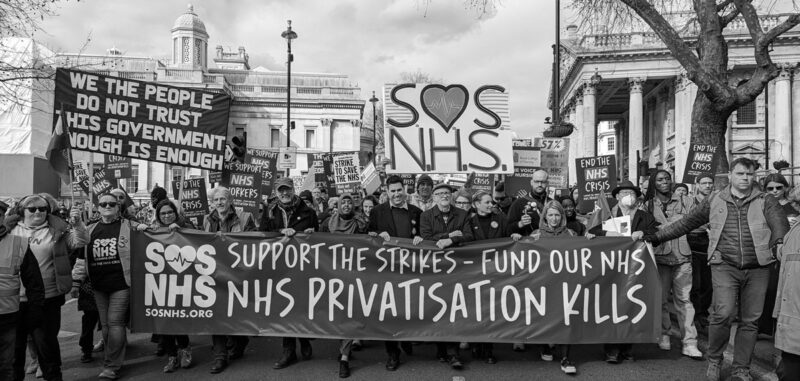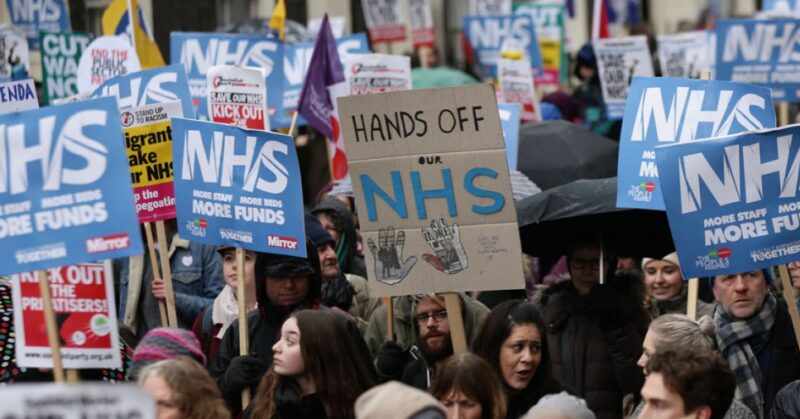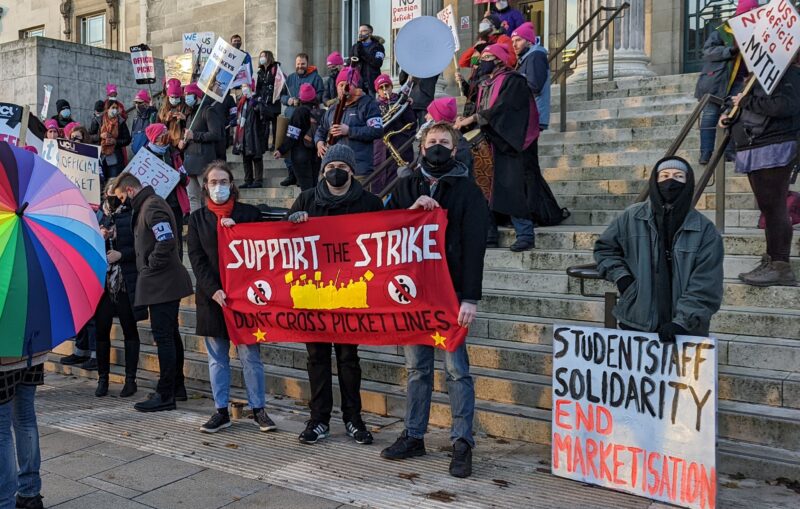Lansley wants to destroy the NHS – stop him now!
 Andrew Lansley’s NHS and Social Care Bill is a fraud. It’s no exaggeration to say that it will destroy the NHS as we know it – letting privatisation rip the heart out of our health service. John Bowman explains
Andrew Lansley’s NHS and Social Care Bill is a fraud. It’s no exaggeration to say that it will destroy the NHS as we know it – letting privatisation rip the heart out of our health service. John Bowman explains
There is no honesty in how it’s presented. The Lansley strategy is pernicious. He has bombarded us with jargon and doublespeak – “consortia”, “pathfinding”, “Monitor”, “foundation trusts”, “social enterprises” – designed to cover up the real intentions of his policy.
But despite this campaign of misinformation huge numbers of people are seeing through the lies. Patient groups and service users are angry – over a quarter of a million people have put their names to an online petition against these so-called “reforms”.
The Royal College of Nursing – not a union known for its radicalism – passed a motion of “no confidence” in Andrew Lansley and condemned his plans. The British Medical Association, whose doctors are supposed to be behind Lansley’s reforms, have proposed over 100 amendments to the bill, and called for it to be withdrawn at its first-ever emergency conference called to discuss the plans.
It’s time to kill the bill
Does the bill give power to GPs? No, it puts in place a dangerous conflict of interest.
Currently, when you go to your GP, they will assess your medical condition and refer you to the hospital or service which best suits your case. Your local Primary Care Trust looks at county or borough-wide medical services to see which treatment centres have vacancies, whether you can have care at home, or in a community-based hospital, and allocate payment to those services for the care they provide to you. PCTs are state owned and funded and are currently responsible for 80 per cent of the health budget.
This won’t be the case by March 2013 if Lansley has his way. PCTs will be abolished, and their administrative responsibility will be taken over by GP “Consortia”. GP surgeries are being asked to group together into these “consortia” which will then have control of the NHS budget and use this money to purchase these services directly, transferring care administration – and crucially responsibility for the budget – to your doctors.
Health unions prepare to strike
The Royal College of Nursing is considering industrial action for the first time in its history over pay. The British Medical Association called Lansley’s reforms “dangerous.” And Unite’s health executive fumed at its national meeting, setting the ball rolling for strikes over pensions.
Workers are furious at the threat hanging over our health service – it’s the Lansley regime that is squarely responsible for the moves towards strikes. Now we must demand the unions unite in a mass campaign of strikes, protest and civil disobedience.
When GPs refer a patient, we trust them to recommend the best care for us, based upon their medical expertise, and only that – they are committed to our health, not required to balance the books or create a profit.
That’s what Lansley’s bill would change. Now GPs won’t just be charged with recommending the best treatment for you, they will have to balance their medical opinion against the financial priorities of the consortium and its budget. It’s a dangerous concoction – combining medical opinion with financial priority.
Just think of the kind of decisions your local GP might make for you towards the end of the financial year if cash is running short. With £20 billion planned in “efficiency” cuts to the NHS budget by 2014 under the Tories’ plans too, the focus on healthcare will be lost completely.
Private companies
And really it won’t even be GPs themselves administering the budget; they are too busy seeing patients 9 to 5. They will have to outsource it. They can’t outsource care administration to the PCTs, because under Lansley’s bill they won’t exist. Instead GP consortiums will need to spend their budgets paying private healthcare companies like United Health to decide where, or if you should be treated.
They will be tasked with saving money, they will be in competition with the NHS and public healthcare, and they will allocate care not on the basis of need, but on the basis of how to save costs and maximise their profit.
When the amount of budget control these private companies will have is taken into account, this will result in a huge, almost total privatisation of healthcare administration and the healthcare budget.
Whilst PCTs are far from perfect, they are publicly owned and run and the NHS budget remains under state control while in their hands. They are to a degree accountable to the public, having to publish minutes and allow access to their meetings. Companies like United Health, the second largest health insurer in the US, operate under a veil of business secrecy, will be unaccountable to the public.
NHS hospitals to close
Healthcare can be allocated to “any willing provider” under Lansley’s scheme, including private companies. The definition of “willing provider” is suitably vague to allow any dodgy private firm to compete for healthcare services.
The private companies will attempt to win contracts by making themselves cheap – using less experienced staff, but also charging below-cost prices to win the contracts in the first instance, causing public NHS services to become financially unviable, and “go bust”. Then they can then raise prices, and cut standards in future years to make large profits, and drive down the quality of care in the longer term.
They even have a word for this vicious policy – “loss leading”: a company prepares to make losses in the first few years, drives NHS hospitals and services out of business (that’s your local hospital that could be forced to close or “downsize”), then reap the benefits thereafter.
Even if NHS hospitals can survive cut throat market competition it will still hit services. They will be forced to cut staff and reduce services as competition will create more and more pressure to cut budgets. The conflict between providing cheap “competitive” treatment and having experienced medical staff and good quality care will intensify.
The real agenda
The reforms are not about improving patient care, they are to privatise public healthcare on an unprecedented scale to boost private profits. Under the cover of an economic crisis, the Tories are trying to deliver their historic goal of breaking up the NHS for good.
It turns the idea of state run public services on its head – the taxpayer just ends up buying services from semi-state bodies or private companies. But it also puts the infrastructure in place to remove the taxpayer from the equation completely, leaving people to buy their own health care from insurance companies and abolishing free universal healthcare provision for good.
There is so much at stake – but the Tories are on the backfoot. They fear a battle with a mass movement and their “consultation” is aimed at dividing the opposition.
But if we fight together – workers, patients, everyone – there is no doubt we can win this one.
If you liked this article also read:
Andrew Lansley: Thatcher’s man who’s out to kill the NHS
Who wants NHS privatisation?
New Healthworker network set up









